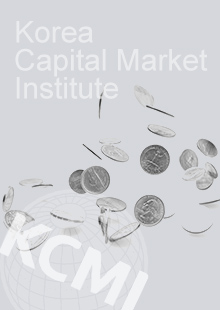Find out more about our latest publications

How to Reform the Timely Disclosure System: With Emphasis on the Comprehensive Method
Research Papers 04-07 Dec. 21, 2004
- Research Topic Capital Markets
- No other publications.
- No other publications.
- No other publications.
Individual investors lack the ability to obtain necessary information for making investment decisions on securities. As such, many countries obligate issuers, by way of securities laws or self-regulatory organization (SRO)’s rules, to disclose material information to investors so that they can make informed investment decisions.
The timely disclosure is a system that obligates companies whose securities are traded in the secondary market to provide information on material developments in corporate business and affairs. Currently, there are three tiers to the legal framework governing timely disclosure: the Securities and Exchange Act (SEA), Enforcement Decree of the SEA, and the Financial Supervisory Commission (FSC)’s Regulation on Securities Disclosure. The Korea Stock Exchange (KSE) and the Korea Securities Dealers Association (KSDA) also have regulations on disclosure. These laws and regulations specifically give a positive list of required disclosure items according to the enumerative method. Issuers that fail meet these disclosure requirements can be subjected to administrative, criminal, and civil sanctions.
In the case of non-periodic disclosure system, the SEA of Korea is quite different from those of the U.S. or Japan, in terms of the legal basis of timely disclosure, the stipulating method of required items for timely disclosure, and the existence of current reports.
The U.S. and Japan have introduced current reports in addition to the timely disclosure system, as part of its non-periodic disclosure system. On the other hand, Korea only implements the timely disclosure system, without having introduced current reports. The legal basis for timely disclosure is also different. In the U.S. or Japan, timely disclosure is required by the regulations of the exchanges, which are basically self-regulations. In contrast, the timely disclosure system in Korea is prescribed by the SEA which is a law. The method for stipulating disclosure items is also different. Korea, like Japan, has adopted the enumerative method, whereas the U.S. applies the comprehensive method.
The enumerative method gives a list of mandatory disclosure items, and companies are considered to have complied when they have disclosed these items. The comprehensive method, however, is a system that stipulates comprehensively the required disclosure items, even if there is a partial list of disclosure items.
The advantage of the enumerative method is that the disclosure items are clearly set out, and thus, their interpretation and application become easier. However, since ‘material information’ depends on company size, industry, market, and corporate management environment, it is difficult for the positive list to be an exhaustive list. In this respect, it is actually impossible, under the enumerative method, to make a list of disclosure items that meets all of the company-specific or market-specific conditions.
Meanwhile, the comprehensive method allows flexibility so that the disclosure items are determined based on the characteristics of the securities markets and companies. Thus, the comprehensive method fundamentally eliminates the ‘rigidity’ problem arising from the comprehensive method, and also makes it easier for the issuers to accept new items which evolve with the times. Conversely, however, since the disclosure items are determined by an abstract concept of ‘materiality,’ issuers, regulators, or SROs need to have the ability to interpret and implement ‘material’ corporate information.
The timely disclosure system, a non-periodic disclosure system in the secondary market, constitutes an important part of Korea’s corporate disclosure system. The timely disclosure system must be well designed and operated in order to enhance the efficiency of the securities market, achieve international competitiveness, and protect investors. This report focuses on the method of determining disclosure items, and examines the issues and possible im